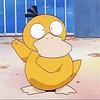Take a photo of a barcode or cover
challenging
dark
emotional
informative
medium-paced
This is a beautiful but horrific memoir about Beah when he was 12, forced to become a child soldier during the civil war in Sierra Leone in Africa. It's a pretty horrific story to read, with a lot of descriptions of violence, but it is also incredibly important. This civil war took place in the 1990s, which is far too close to our current times. It documents Beah's psychological loss of innocence and how he was high on drugs as a soldier to be able to kill people. It's a horrific story, but I also found it beautiful and moving to read. And, unlike so many child soldiers who fought alongside him, Ishmael Beah was able to escape.
fast-paced
This book was extremely depressing, but very informational. I honestly had no idea what was going on in Sierra Leon or really any country in Africa but now I know a little bit and it frightens me! Great memoir, never thought I would say that about a memoir actually. But I loved this crazy book!
dark
sad
medium-paced
I put off reading this for a while as I didn't want to face the story being told. I read his first fictional novel a little while ago and I wrote this:
I haven't read Ishmael Beah's memoir yet, and I'm glad I started with this one. I'm not sure how he writes his memoir, and whether there is adherence to strict facts (not that I think that's a prerequisite, especially given the circumstances). I'm sure the events laid out in this book are based on factual occurrences but there is leeway to ascribe actions and thoughts to particular characters, for the purpose of exposition. It's dense but easy to read. It tells the story of people returning to their homes at the end of the Sierra Leone civil war. Beah's writing draws on storytelling techniques from his home, and these give the book a lyrical quality, in spite of the horrific events that occur. The war may have been officially over but that didn't stop people behaving in an appalling manner, and with no thought to human life (besides their own and their cronies). I look forward to reading more of Beah's fiction, whether set in West Africa or not.
And now to this book, it's hard to say you enjoy a book like this, but Beah writes well and has a powerful voice. This memoir incorporates storytelling explicitly and implicitly.
*spoilers*
As I was reading I was imagining he would be captured at some point, and the fact he and his friends are not taken by force, rather they end up in a village where the only choice is to join the 'army' and become a child soldier, makes it all the more insidious. He doesn't spare us the graphic horror but I didn't feel it was gratuitous at all. This is an incredible tale of survival. In the body of the story politics is only rarely brought in and Beah conveys his knowledge of the war at the time he was experiencing it. He isn't with the rebel forces but it's unclear who he actually is with, and both sides used child soldiers. Reading this gave me rare insight into the struggle and I'll go back to reading about the Truth and Reconciliation process employed in Sierra Leone after the war with new eyes. The image I'm left with after reading this isn't the horror and atrocities carried out by the child soldiers, but of Ishmael wandering with other children he meets along the way, after having to flee from his home village. He lives with tragedy from that moment on, and their journey appeared never ending no matter what they did. Hell is when they entered the village where they are taken to be child soldiers, and there appeared to be no clear way out of that either. We know that Ishmael makes it out, but his survival bucked the odds greatly. I feel that teenagers could read this book and if I'd read it as a teenager I don't think I would have been traumatised by the telling of this tale. This happened and we need to bring this to light to one day have no child soldiers left in the world. We also need this story to bring to light the rehabilitation that is possible; that these lost boys don't have to wander forever.
I haven't read Ishmael Beah's memoir yet, and I'm glad I started with this one. I'm not sure how he writes his memoir, and whether there is adherence to strict facts (not that I think that's a prerequisite, especially given the circumstances). I'm sure the events laid out in this book are based on factual occurrences but there is leeway to ascribe actions and thoughts to particular characters, for the purpose of exposition. It's dense but easy to read. It tells the story of people returning to their homes at the end of the Sierra Leone civil war. Beah's writing draws on storytelling techniques from his home, and these give the book a lyrical quality, in spite of the horrific events that occur. The war may have been officially over but that didn't stop people behaving in an appalling manner, and with no thought to human life (besides their own and their cronies). I look forward to reading more of Beah's fiction, whether set in West Africa or not.
And now to this book, it's hard to say you enjoy a book like this, but Beah writes well and has a powerful voice. This memoir incorporates storytelling explicitly and implicitly.
*spoilers*
As I was reading I was imagining he would be captured at some point, and the fact he and his friends are not taken by force, rather they end up in a village where the only choice is to join the 'army' and become a child soldier, makes it all the more insidious. He doesn't spare us the graphic horror but I didn't feel it was gratuitous at all. This is an incredible tale of survival. In the body of the story politics is only rarely brought in and Beah conveys his knowledge of the war at the time he was experiencing it. He isn't with the rebel forces but it's unclear who he actually is with, and both sides used child soldiers. Reading this gave me rare insight into the struggle and I'll go back to reading about the Truth and Reconciliation process employed in Sierra Leone after the war with new eyes. The image I'm left with after reading this isn't the horror and atrocities carried out by the child soldiers, but of Ishmael wandering with other children he meets along the way, after having to flee from his home village. He lives with tragedy from that moment on, and their journey appeared never ending no matter what they did. Hell is when they entered the village where they are taken to be child soldiers, and there appeared to be no clear way out of that either. We know that Ishmael makes it out, but his survival bucked the odds greatly. I feel that teenagers could read this book and if I'd read it as a teenager I don't think I would have been traumatised by the telling of this tale. This happened and we need to bring this to light to one day have no child soldiers left in the world. We also need this story to bring to light the rehabilitation that is possible; that these lost boys don't have to wander forever.
I read this for school, so I will make a video going in depth with my review for the assignment. I will say here that this really didn't read like creative nonfiction at all and books like this that lack scene and a strong voice are the reason many readers avoid nonfiction. This was published years before the big CNF boom, so there's that. I did read that the validity of this memoir has been brought into question, and I also find myself wondering as to its truthfulness. I want to give Beah some slack due to his childhood trauma, but if you look at the straight-up facts, the timeline doesn't add up at all and it leads me to wonder...
Without taking the question of its validity into account, the book stands at a solid 3 stars. I definitely recommend it for memoir lovers, but for someone who is a hardcore fiction and CNF reader... I'd say it would be a pass.
I also will say that I already new a lot about the child soldiers in Africa before going into this since I was involved with Invisible Children (although that was a completely separate war), so I wasn't so shocked by the violence and atrocities committed by the rebels as someone else might be.
Without taking the question of its validity into account, the book stands at a solid 3 stars. I definitely recommend it for memoir lovers, but for someone who is a hardcore fiction and CNF reader... I'd say it would be a pass.
I also will say that I already new a lot about the child soldiers in Africa before going into this since I was involved with Invisible Children (although that was a completely separate war), so I wasn't so shocked by the violence and atrocities committed by the rebels as someone else might be.
It is extremely difficult to rate an account that details the realities of chaos and war to a site that largely favors standards for more fictional works. The courage of author to tell his story (and narrated in audio form) alone is commendable and worth the whole of 5 stars. His detached narrative voice and jumbling and sometimes abrupt narrative adds to the depth in which we understand that he is still and still will continually reconcile with his past traumas and experiences. This we understand the most through the author’s teenage years in the rehabilitation centers.
From a reader’s subjective preference though, the ending was too abrupt. The story seemed to be heading a few points further down the timeline - his arrival and adoption in America, acknowledged earlier in the story. The story ended when he arrived at the neighboring country’s embassy. Other characters were often hard to differentiate and came off as being flat, but I made mental notes that this is a group of people affected by war viewed through the lens of one affected by war as well. I can’t find it in myself to call these valid criticisms, as most stories in reality have missing holes and forgotten endings; yet, from a organizational urge within me, I yearn for the missing papers between the multiple stories told in this memoir.
The content itself is undefinable by star ratings, and I highly recommend it for a read.
From a reader’s subjective preference though, the ending was too abrupt. The story seemed to be heading a few points further down the timeline - his arrival and adoption in America, acknowledged earlier in the story.
The content itself is undefinable by star ratings, and I highly recommend it for a read.
emotional
inspiring
medium-paced
dark
emotional
informative
medium-paced
I liked the book as it was very informative. Sometimes I just found myself reading but not understanding.
Graphic: Child death





